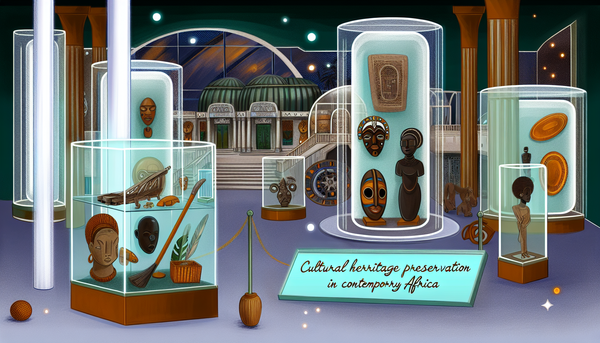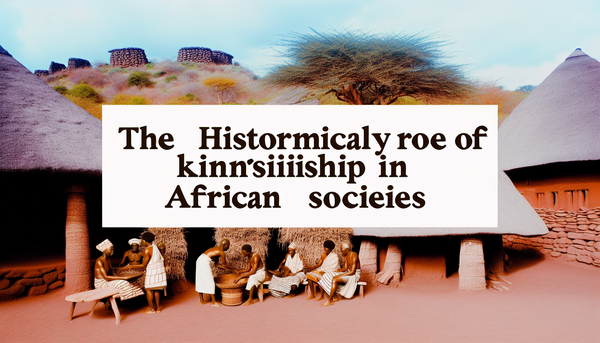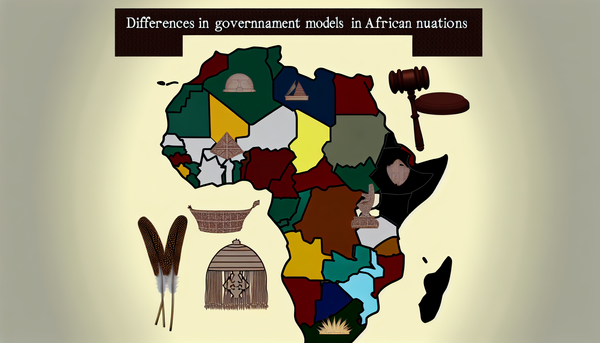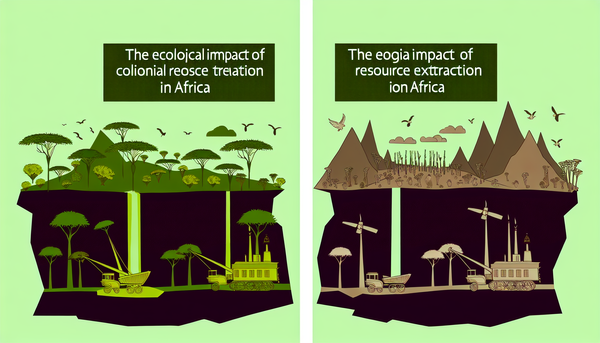The Role of Oral Traditions in Preserving African History
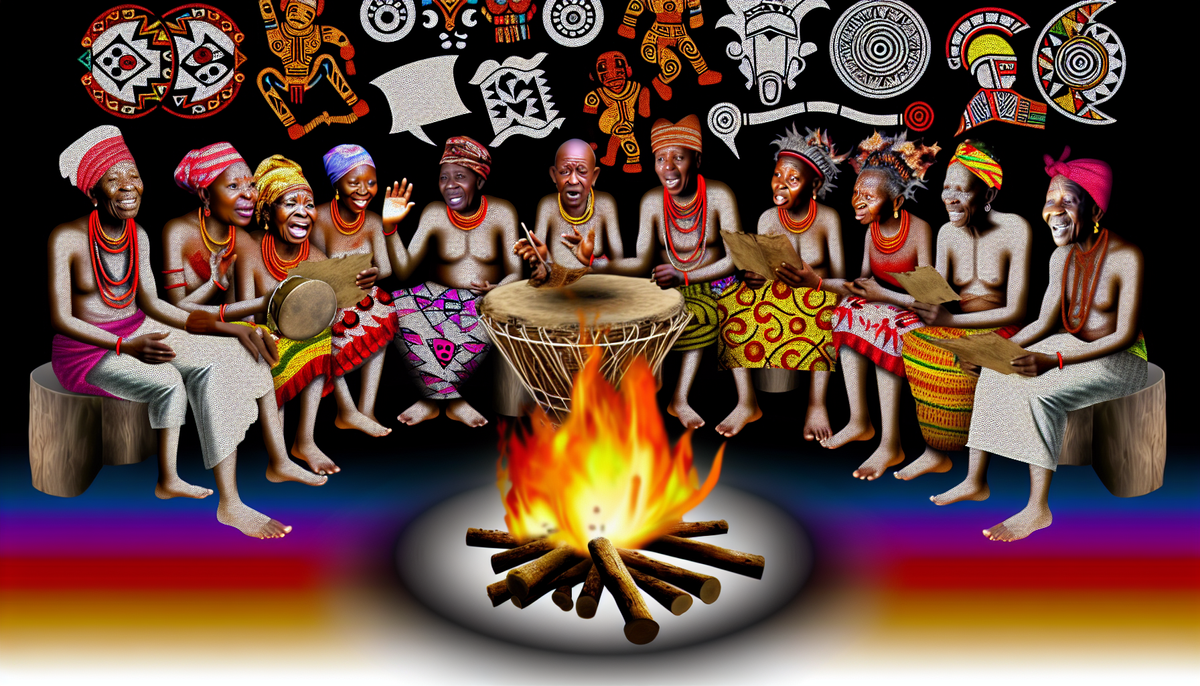
Introduction: Understanding Oral Traditions
Oral traditions are an integral aspect of African culture, serving as vital conduits for the transmission of knowledge, values, and history across generations. Unlike written records, which can be easily lost or altered, oral traditions rely on the human voice, weaving tales through storytelling, proverbs, songs, and rituals. This unique form of communication not only preserves historical events but also imbues them with significance, enriching the cultural identity of various communities.
In Africa, oral traditions encapsulate the essence of diverse ethnic groups, each with its distinct narratives and artistic expressions. These stories often convey moral lessons, celebrate communal achievements, and explain natural phenomena, providing a framework through which individuals can understand their place in the world. The role of griots and elders becomes paramount in this process, as they are the custodians of knowledge, using their skills to engage audiences and ensure the continuity of their people's heritage.
Despite facing challenges in the modern era, including globalization and technological advancements, oral traditions remain resilient. They adapt and evolve, proving to be dynamic vehicles for cultural preservation while offering insights into Africa's rich historical tapestry. Understanding these traditions is crucial to appreciating the broader context of African history and identity.
Origins and Evolution of Oral Storytelling
The roots of oral storytelling in Africa extend deep into the continent's history, tracing back to prehistoric times when early humans relied on narrative to communicate and share experiences. From these primitive beginnings, oral traditions evolved as a sophisticated means of conveying knowledge, cultural values, and societal norms through generations. In many African societies, storytelling became an art form, where skilled narrators, often known as griots or storytellers, played a pivotal role in the community.
These storytellers were not merely entertainers; they served as historians, genealogists, and cultural custodians. They recounted tales of ancestors, heroic feats, and moral lessons, fostering a collective memory that bound communities together. Over time, the methods of storytelling expanded, incorporating songs, poetry, and chants, each adding depth and richness to the narrative tapestry.
The evolution of oral traditions also reflects the adaptability of African societies. With the arrival of different cultures and influences—such as colonization and globalization—oral storytelling has continuously transformed. Modern storytellers often blend traditional narratives with contemporary themes, ensuring that the essence of their heritage remains relevant. Through this dynamic evolution, oral storytelling remains a vital expression of identity, ensuring that the wisdom of the past continues to resonate with future generations.
Cultural Significance and Community Bonds
Oral traditions play a crucial role in shaping the cultural landscape of African societies, fostering a sense of identity and belonging among community members. These storytelling practices are not merely entertainment; they forge deep-rooted connections within families and across larger social groups. The act of sharing stories often occurs during communal gatherings, ceremonies, or celebrations, creating shared experiences that strengthen community bonds.
Through oral storytelling, cultural values and social norms are transmitted from one generation to the next. Narratives often include lessons on morality, respect for elders, and the importance of community, reinforcing the principles that guide daily life. This process cultivates a sense of responsibility among individuals, emphasizing their roles within the larger community framework.
Moreover, oral traditions serve as a means of cultural expression, showcasing the rich tapestry of languages, rhythms, and artistic styles inherent in African societies. They reflect the diversity of experiences while highlighting common themes, such as resilience, unity, and harmony with nature. In challenging times, these stories can act as sources of comfort and motivation, allowing communities to draw strength from their shared heritage. Thus, the cultural significance of oral traditions lies in their ability to unite people, ensuring that the essence of collective identity endures.
Transmission of Knowledge and Values
The transmission of knowledge and values through oral traditions is a fundamental aspect of African cultures, serving as a means to educate and inform both the young and old. Storytelling, as a communicative practice, embodies a rich repository of lessons, wisdom, and moral teachings that are integral to community life. Through engaging narratives, storytellers impart essential information about history, ethics, and customs, fostering a sense of continuity and stability within societies.
In many African communities, oral traditions are an accessible form of education, especially in areas where formal schooling may be minimal. Storytellers weave intricate tales that illustrate complex concepts, making them relatable and easy to remember. Children learn about their heritage, societal roles, and responsibilities through these engaging methods, ensuring that valuable cultural knowledge is preserved.
Moreover, oral traditions highlight core values such as respect, unity, and resilience, encouraging community members to reflect on their actions and responsibilities towards one another. The use of proverbs and metaphors enhances understanding, allowing listeners to grasp profound ideas in a concise manner. This unique approach to knowledge transmission reinforces cultural identity, promotes social cohesion, and ensures that the foundational values of African societies endure across generations, shaping the character of future leaders and citizens.
Challenges in Maintaining Oral Histories
Despite their significance, the preservation of oral histories in African cultures faces several challenges in today's rapidly changing world. One of the key issues is the impact of globalization, which often promotes a homogenized culture that can overshadow local narratives. As young people increasingly engage with global media and technology, traditional storytelling methods may be devalued or overlooked, leading to a decline in interest and participation.
Additionally, the aging population of traditional storytellers poses a significant concern. Many skilled griots and elders, who are the custodians of oral histories, are passing away without adequately passing on their vast knowledge. This generational gap can result in the loss of invaluable cultural narratives that have been sustained for centuries.
Furthermore, the advent of modernization and urbanization can disrupt communal gatherings, limiting opportunities for storytelling sessions that foster connection and knowledge sharing. The shift toward formal education systems, while beneficial in many respects, may also prioritize written forms of information, relegating oral traditions to the background.
Finally, the influence of digital technology, while offering new platforms for storytelling, can potentially alter the essence of these traditions, leading to a risk of misinterpretation or commercialization. Addressing these challenges is crucial to ensure that oral histories continue to thrive and remain integral to African cultural heritage.
Impact on Modern African Societies
The relevance of oral traditions significantly shapes modern African societies, reflecting a dynamic interplay between history and contemporary life. As globalization influences cultural practices, many Africans are increasingly rediscovering and valuing their oral heritage as a means of cultural affirmation and identity. Oral storytelling provides a sense of continuity, offering insights into ancestral wisdom that can inform present-day challenges and aspirations.
In urban environments, where modernization often disconnects individuals from their roots, oral traditions serve as a bridge to heritage. They foster a collective identity among diverse groups, allowing for the exploration of shared experiences while celebrating individual narratives. This cultural reconnection can enhance social cohesion, especially in multicultural settings, by promoting understanding and respect among different ethnic communities.
Moreover, oral traditions have gained new platforms through technology and social media, allowing contemporary storytellers to reach wider audiences. Initiatives such as storytelling festivals and digital storytelling projects enable the younger generation to engage with their heritage creatively, merging traditional themes with modern media.
Ultimately, the resilience of oral traditions empowers African societies to confront modern issues, such as social justice and environmental challenges, by drawing on the values and lessons embedded in their rich tapestry of stories. This resurgence signifies a powerful reclamation of cultural identity and community strength.
Future Prospects for Oral Traditions
The future of oral traditions in Africa appears promising, as these rich cultural practices adapt to contemporary contexts while preserving their core essence. With an increasing global focus on cultural diversity and heritage preservation, there is renewed appreciation for storytelling as a vital component of identity and collective memory. Cultural institutions, NGOs, and grassroots movements are actively working to document and promote oral histories, ensuring that they remain accessible to future generations.
Moreover, the integration of technology presents unique opportunities for the revitalization of oral storytelling. Digital platforms enable storytellers to reach broader audiences, while social media can amplify their voices, making traditional narratives relevant in modern discourse. Podcasts, online storytelling events, and virtual reality experiences are innovative avenues through which oral traditions can be shared, evolving with contemporary audiences.
Education systems are beginning to recognize the value of oral traditions in teaching history, ethics, and cultural awareness. Incorporating storytelling into curricula can foster appreciation for diverse cultural narratives, cultivating respect for different worldviews.
As communities actively engage with their storytelling heritage, there is potential for oral traditions to thrive and evolve, serving as a source of resilience and inspiration. Embracing both tradition and innovation, the future of oral storytelling is poised to enhance cultural continuity and foster connections across generations.
